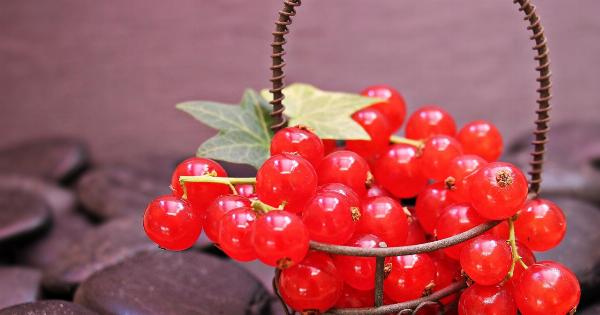Kidney stones are small, hard mineral deposits that can form in your kidneys. They can be extremely painful and are often caused by a combination of factors including dehydration, diet, and genetics.
While medical intervention may be necessary to treat severe cases, making changes to your diet can help prevent kidney stones from forming in the first place.
1. Drink Plenty of Water
One of the most effective ways to prevent kidney stones is to stay hydrated by drinking plenty of water. This helps dilute the concentration of minerals and salts in your urine, reducing the risk of stone formation.
Experts recommend drinking at least 8 to 12 glasses of water per day.
2. Lemon Juice
Lemons and lemon juice are rich in citric acid, which can help prevent the formation of certain types of kidney stones. Citric acid binds to calcium in the urine, preventing it from crystallizing and forming stones.
Squeeze fresh lemon juice into a glass of water and drink it daily to help reduce the risk of kidney stones.
3. Dietary Calcium
Contrary to popular belief, consuming adequate amounts of dietary calcium can actually help prevent kidney stones. Calcium binds to oxalate in the intestines, preventing it from being absorbed into the bloodstream and later excreted by the kidneys.
Good sources of dietary calcium include low-fat dairy products, leafy green vegetables, and fortified plant-based milk alternatives.
4. Limit Sodium Intake
High sodium intake can increase the amount of calcium excreted in the urine, promoting the formation of kidney stones. Avoid processed and packaged foods that are high in sodium, and instead opt for fresh, unprocessed foods.
Use herbs and spices to flavor your meals instead of salt.
5. Eat Foods Rich in Magnesium
Magnesium can help prevent the formation of calcium oxalate kidney stones. Foods rich in magnesium include leafy green vegetables, nuts, seeds, and whole grains. Incorporating these foods into your diet can help reduce the risk of kidney stone formation.
6. Limit Oxalate-Rich Foods
Oxalate is a compound found in many foods that can bind to calcium in the urine, increasing the risk of kidney stone formation. Limiting intake of oxalate-rich foods may be beneficial for those prone to developing kidney stones.
Foods high in oxalate include spinach, beets, rhubarb, chocolate, peanuts, and soy products.
7. Increase Dietary Fiber
Dietary fiber can help prevent the formation of kidney stones by binding to calcium and other minerals in the intestines, preventing them from being absorbed into the bloodstream and excreted by the kidneys.
Increase your intake of fruits, vegetables, whole grains, and legumes to ensure an adequate fiber intake.
8. Avoid Animal Protein
Animal protein, such as red meat, poultry, and seafood, can increase the levels of uric acid and calcium in the urine, making it more conducive to the formation of kidney stones.
Limit your intake of animal protein and opt for plant-based protein sources like legumes and tofu instead.
9. Limit Caffeine and Alcohol
Caffeine and alcohol can dehydrate the body, increasing the risk of kidney stone formation. Limit your consumption of coffee, tea, soda, and alcoholic beverages. It’s important to stay well-hydrated with water instead.
10. Eat Foods Rich in Vitamin B6
Vitamin B6 can help reduce the production of oxalate in the body. Foods rich in vitamin B6 include bananas, potatoes, chickpeas, and fish. Incorporating these foods into your diet can be beneficial in preventing kidney stones.






























